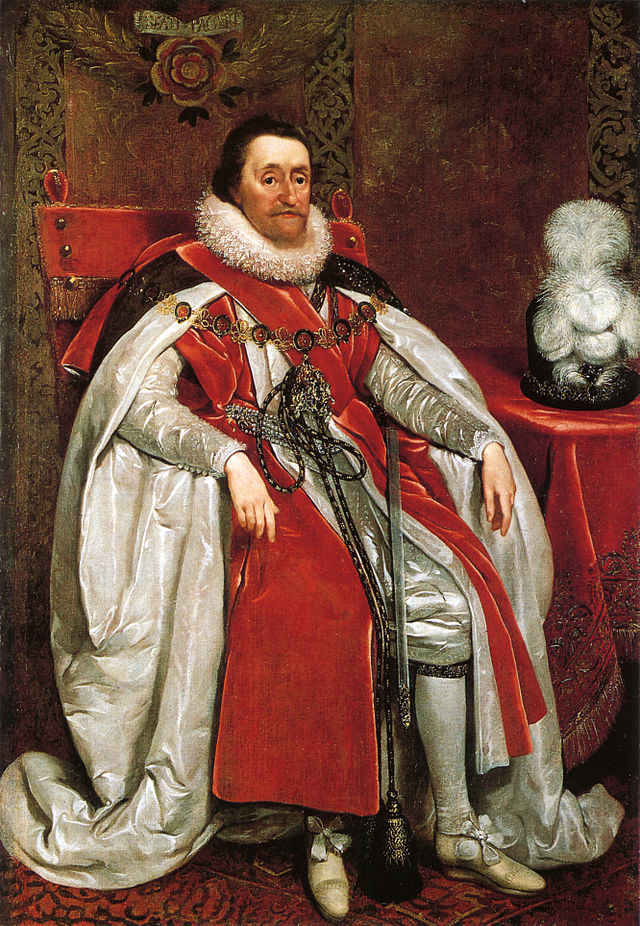James I (1566 - 1625)
|
James I was the only son of Mary, Queen of Scots, and her second husband, Henry Stuart, Lord Darnley. Both Mary and Darnley were great-grandchildren of Henry VII of England through Margaret Tudor, the older sister of Henry VIII. James was King of Scotland as James VI from 24 July 1567 and King of England and Ireland as James I from the union of the Scottish and English crowns on 24 March 1603 until his death. After the Union of the Crowns, he based himself in England (the largest of the three realms) from 1603, only returning to Scotland once in 1617, and styled himself "King of Great Britain and Ireland". He was an advocate of a single parliament for both England and Scotland. A marriage was arranged with the fourteen-year-old Anne of Denmark. Shortly after a proxy marriage in Copenhagen in August 1589, Anne sailed for Scotland but was forced by storms to the coast of Norway. On hearing the crossing had been abandoned, James sailed with a three-hundred-strong retinue to fetch Anne personally. The couple were married formally in Oslo on 23 November and returned to Scotland on 1 May 1590. The royal couple produced three children who survived to adulthood: Henry Frederick, Prince of Wales, who died of typhoid fever in 1612, aged 18; Elizabeth, later queen of Bohemia; and Charles, his successor. Under James, the "Golden Age" of Elizabethan literature and drama continued, with writers such as William Shakespeare, John Donne, Ben Jonson, and Sir Francis Bacon contributing to a flourishing literary culture. James himself was a talented scholar, the author of works such as Daemonologie (1597), True Law of Free Monarchies (1598), and Basilikon Doron (1599). He sponsored the translation of the Bible that was named after him: the Authorised King James Version. James held the Manor of Bisley from his accession to the English throne in 1603. Prince Henry immediately became Duke of Cornwall on his father's accession to the English throne. He was invested as Prince of Wales and Earl of Chester in 1610, when it is likely he was granted the manor of Bisley. After the death of Prince Henry Frederick, James granted the manor to his wife, Anne of Denmark. Following Anne's death in 1619, the manor reverted to James who granted it, along with Woking, to Edward Zouch in 1620. |
